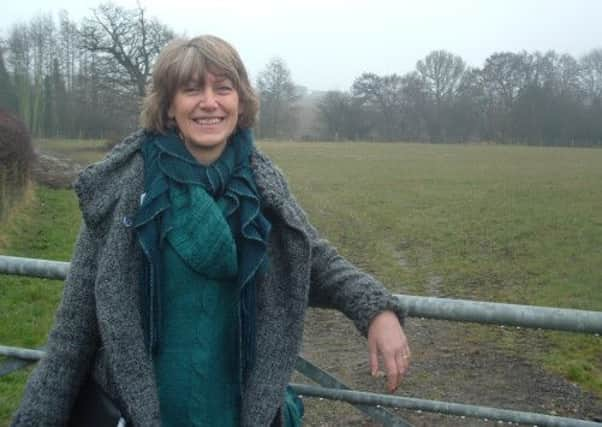Emotional strain of hard times and isolation takes toll on farmers


Stress is farming’s silent killer. Agriculture has long been at the top of the league table in suicide victims each year, but even if lives are not lost as a result stress still remains one of the underlying problems in the countryside today.
There are several organisations and charities that realise the problems and are seeking to help. Prominent in Yorkshire are the regional committees of the RABI (Royal Agricultural Benevolent Institution), the NFU, CLA, Rural Crisis Network and churches.
Advertisement
Hide AdAdvertisement
Hide AdFarmer’s wife Philippa Coultish, who lives near Holmfirth, this week became the new chairman of the Yorkshire Rural Support Network that brings all of the various organisations together. Philippa is also chairman of the West Riding branch of the RABI.
“It is a very difficult time at the moment for many farmers and the RABI has been quite concerned with the high number of calls they have been receiving from working farmers already this year.
“Farmers are very resilient and they are used to coping with whatever life throws their way. But everyone has a limit and the knock-on effect of the continuously poor weather they suffered for such a long time last year is probably only being seen now.
“Poorer yields on crops or having to feed cattle indoors for longer during the autumn and winter are not good news, especially at a time when margins are being tested with increased costs of fuel and feed.
Advertisement
Hide AdAdvertisement
Hide Ad“At one of our recent meetings we heard from a lecturer at Leeds Metropolitan University who told us of the research he has been conducting on men’s mental health. Men are inclined to bottle things up more than women and don’t let their emotions out, sometimes until they cannot find any way out of their problems.
“In the rural world stress seems to be becoming much more psychological then physical. In years gone by the RABI would have been more likely to have been giving support to farmers and farm workers who had accidents and couldn’t work, helping them with the means to bring in someone whilst they recovered.”
Philippa also believes that the social network that used to exist in farming is another contributory factor.
“Farming is becoming a much more isolated occupation than it once was. Where we are, in the Holmfirth and Wakefield area, is not as geographically isolated as a farmer in the middle of the North York Moors, but it doesn’t matter whether you are one mile or 10 miles from someone if you don’t talk to them.
Advertisement
Hide AdAdvertisement
Hide Ad“There are fewer farm workers and farmers wives are generally out at work providing second incomes.
“At Penistone Show around 30 years ago all of the farmers wives would bring cakes and help with the serving of food and drinks but there are not the people around anymore. That’s just one instance of how farming has changed.”
For much of the past decade Philippa has been supporting businesses in both South and West Yorkshire following on from studies at Huddersfield University for qualifications in Business Information and Technology.
“Fund raising is always important, but it is the awareness that organisations such as the RABI are around that is probably even more vital.
Advertisement
Hide AdAdvertisement
Hide Ad“Stress isn’t just something that attacks a certain type of farmer either. It can have a detrimental effect on a 1,000 acre arable farmer just as much as a hill farmer with 100 sheep.”
But what happens if organisations such as the RABI talk with a farmer who has come forward seeking help and feel that his deep-lying problem is that the way his farm operates just isn’t viable to carry on?
Isn’t it better to give someone the stark truth rather than sorting him out in the short-term, leaving him to be back to square one a year or two later?
It’s a tough situation for anyone to assist when someone’s problems are not your own and you are not carrying the baggage of a lifetime on the farm; and when you cannot possibly understand all the other pressures such as being regarded as the first one to fail on the farm after so many generations; and feeling you are letting families down by your inability to make the farm pay.
Advertisement
Hide AdAdvertisement
Hide Ad“You would always advise anyone to take a realistic look at their financial situation and the detail of what is happening in their business. That’s what I do with the other businesses I talk with and support. The people who would do that via an RABI and YRSN involvement would be the intermediaries.
“They would assist the farmer in his decision-making process about what he felt he should do, if such a decision was needed, but the final decision on anything would always rest with the farmer himself.
“My goal is to try and get the word out to more intermediaries and promote the support that is available through the YRSN. That way all of the various organisations can work together to help eradicate as best we can the stress that exists.”
Background in farming life
Philippa grew up in a farming family environment. Her mother was a farmer’s daughter and her father ran a mobile greengrocery business. She worked on her grandparents’ and her uncles’ farms in West Bretton and Denby Dale. Her husband Graham is chairman of the Penistone branch of the NFU and is a previous West Riding county chairman. He teaches at Craven College, Skipton two days a week as well as running the farm.